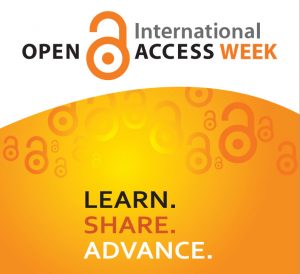October 19-25 is designated as International Open Access Week. Open access is defined as the free, immediate, online availability of research articles combined with the rights to use these articles fully in the digital environment. The open access movement began in the 1990’s and has grown and matured along with the internet. The theme of this year’s Open Access Week is: “Open with Purpose: Taking Action to Build Structural Equity and Inclusion.”
Those unfamiliar with open access, might wonder if tying improving open access to making any sort of real dent in the deep and systemic problems related to equity and inclusion isn’t just an attempt to co-opt an important nationwide movement. In 2008, Aaron Swartz, a young programmer and open access visionary wrote a Guerrilla Open Access Manifesto which includes the following: “Those with access to these resources – students, librarians, scientists – you have been given a privilege. You get to feed at this banquet of knowledge while the rest of the world is locked out. But you need not – indeed, morally, you cannot – keep this privilege for yourselves.” As Swartz makes clear, information is power, but if this power (in the form of access to information) is not the same for everyone, then inequity is the result. Knowledge builds upon knowledge, so the only equitable way forward is to reduce discrepancies in who has access to information.
Open access is one component of a broader “open” movement that also includes open source software, open educational materials (OER), and open data. Together these initiatives are beginning to re-shape who has access to information and who doesn’t, pointing the way to a more equitable and inclusive future.
Stop by and see the Open Access display in the Ames library and check out The Ames Library’s guide related to Open Access and Open Educational Resources.

